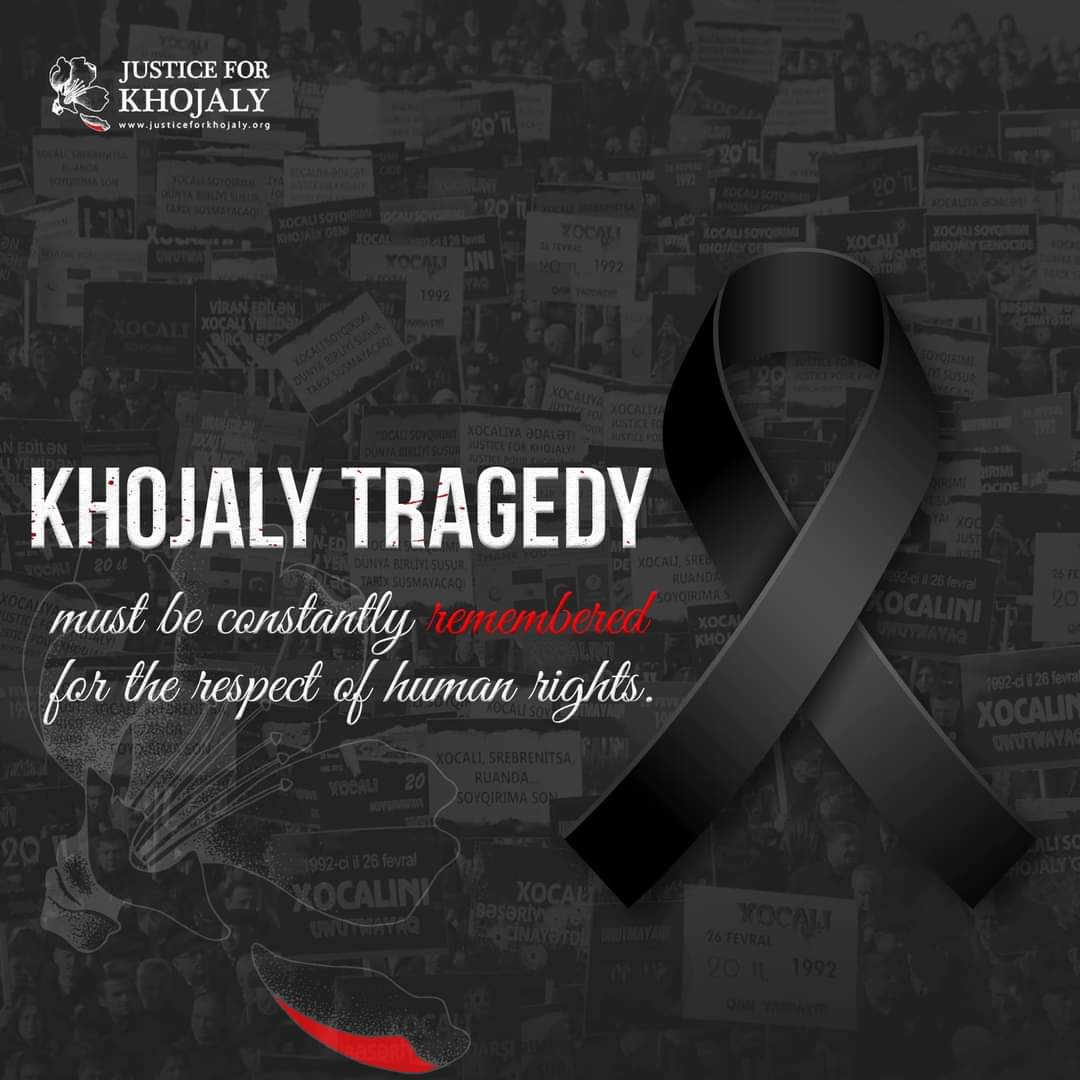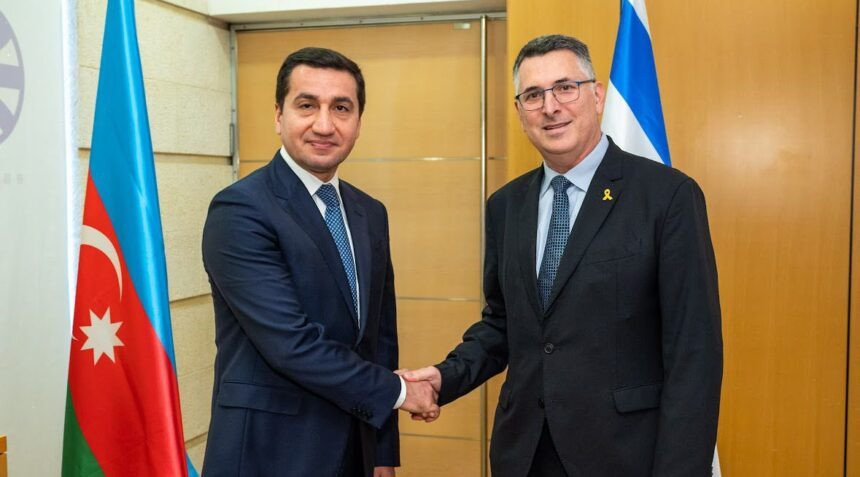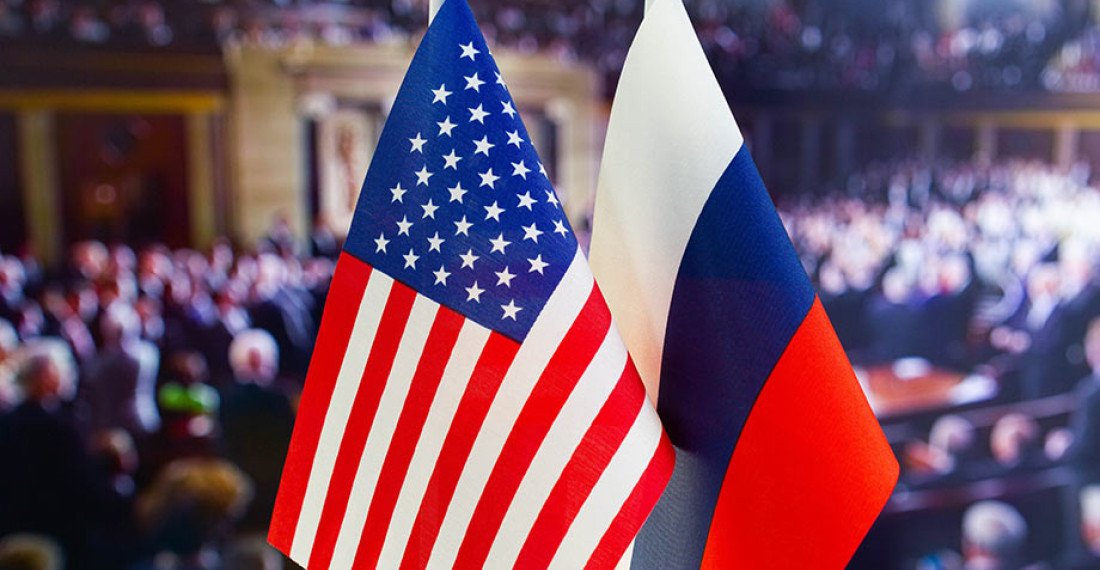The occupation and ethnic cleansing of Azerbaijan’s Karabakh region and seven surrounding districts in the early 1990s by the armed forces of Armenia was a process of immeasurable atrocities and extreme violence. The Armenian leaders, having realized that more than 700,000 people based in this region would not be easily persuaded to flee and leave their homes, decided to force them into it. The ethnic cleansing of the region by the Armed Forces of Armenia in early 1990s resulted in numerous humanitarian tragedies over the years, but the most tragic event was the massacre of over 600 Azerbaijani civilians in Khojaly, a town with a population of seven thousand people, in bitterly cold morning of February 26, 1992.
Serzh Sargsyan, Armenia’s President in 2008-2018, once admitted that one major goal of the massacre of the civilians in Khojaly was to scare off other Azerbaijanis and forced them flee the region. Sargsyan, who was the commander of military forces of the separatist regime in Karabakh in 1992, told Thomas de-Wall, a British journalist, in an interview dated December 2000 that “Before Khojaly, the Azerbaijanis thought that they were joking with us, they thought that the Armenians were people who could not raise their hand against the civilian population. We needed to put a stop to all that. And that’s what happened.”
The Armenian Armed Forces committed ruthless war-crimes to reach this objective. More than 600 people, including 106 women and 63 children, were tortured and brutally murdered. The fate of 150 of them, including 68 women and 26 children, remains unknown to date. As a result of the massacre, 487 were injured, 8 families were completely destroyed, 130 children lost one and 25 children lost both parents. This massacre in Khojaly was documented in detail by journalists and later reported by the human rights organizations including the Human Rights Watch which described this tragedy as “the largest massacre to date in the conflict” between Armenia and Azerbaijan.
The occupation of Khojaly, a strategically important part of the Karabakh region of Azerbaijan and the town that hosted the only airport of the region, was a critical step in Armenia’s plans to seize the control over the surrounding districts. In the following months, a series of other towns and villages in the region were forcefully occupied, its residents were expelled and all the occupied areas were subject to relentless looting and destruction.
The Khojaly Genocide was documented by some journalists and later reported by various international human rights organizations, including Human Rights Watch (HRW). The HRW described the mass killing in Khojaly as “the largest massacre to date in the conflict” between Armenia and Azerbaijan. Following the Second Karabakh War (September 27-November 10, 2020) that ended with Azerbaijan's victory and liberation of the occupied territories, the significance of the Khojaly tragedy has grown, with an increasing number of states and world parliaments recognizing it as genocide. To date, 17 national legislative bodies, 24 U.S. states, the Organization of Islamic Cooperation, and the Organization of Turkic States have adopted resolutions condemning the massacre and categorizing it as both a crime against humanity and an act of genocide. In its judgment of 22 April 2010, the European Court of Human Rights arrived at an important conclusion with respect to the crimes committed in Khojaly, denouncing the behavior of those carrying out the atrocities as “acts of particular gravity which may amount to war crimes or crimes against humanity”.
Azerbaijan’s Ministry of Foreign Affairs pointed out in its statement on the occasion of the 30th anniversary of the Khojaly genocide that, “The indiscriminate killings of civilians at Khojaly stemmed from a policy of ethnic hatred and racial discrimination against Azerbaijanis at the state level in Armenia. It led to the killing of innocent people based simply on their ethnicity. The crimes committed at Khojaly were an integral part of Armenia's policy of systematic violence against Azerbaijanis. The Khojaly massacre and other crimes committed by Armenia in the course of its aggression against the Republic of Azerbaijan, including war crimes, crimes against humanity and genocide, constitute serious violations of international humanitarian and human rights law. These include violations of the Convention on the Prevention and Punishment of the Crime of Genocide; the Convention against Torture and Other Cruel, Inhuman or Degrading Treatment or Punishment; the International Convention on the Elimination of All Forms of Racial Discrimination and others.”
2024 is the first year that Azerbaijan commemorates the victims of the Khojaly genocide with the town of Khojaly liberated. Azerbaijan’s anti-terror operations in September 2023 dismantled the separatist regime in the Karabakh region and brought liberty back to the territories that remained under the illegal control of this regime following the Second Karabakh War. In the aftermath of the liberation of Azerbaijan’s occupied territories and the resolution of the conflict, Armenia and Azerbaijan are now unprecedentedly close to peace and reconciliation.
The recent peace process between the two countries has highlighted the need for accountability for the atrocities committed against Azerbaijani civilians. However, instead of offering apologies for their actions, Armenia continues to pursue policies destructive to regional peace and security. The reality is that there can be no alternative to recognizing past tragedies and holding those responsible for their actions. This is the only way to establish lasting peace, security and reconciliation between the two countries. Khojaly, a tragic genocide that occurred over 30 years ago, is still waiting for justice. It is time for Armenia to take responsibility and make amends for its war crimes. Only then can the two countries move forward towards a peaceful future.
The article is also available in the Georgian, Latvian, and Swedish languages.








